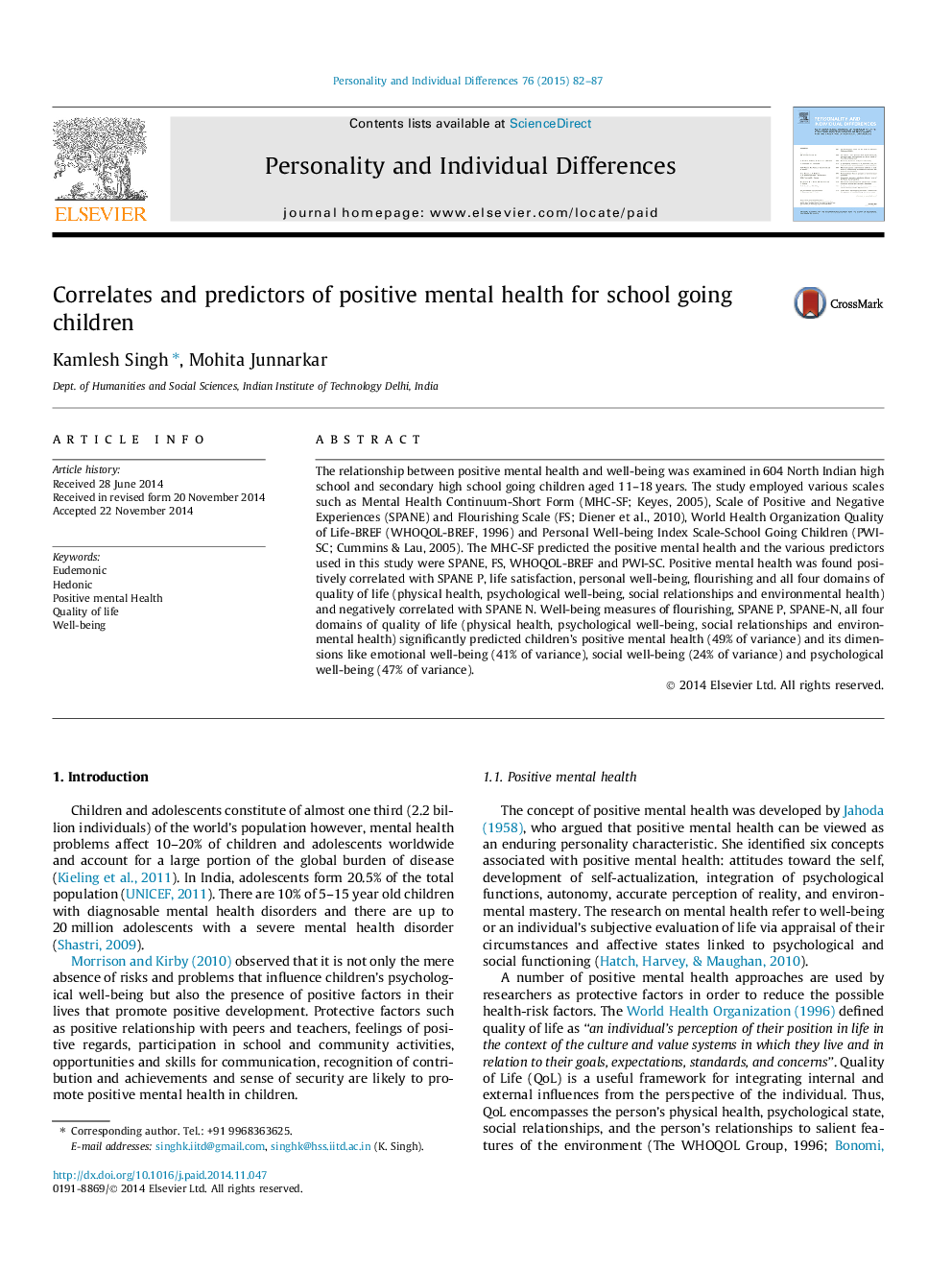| Article ID | Journal | Published Year | Pages | File Type |
|---|---|---|---|---|
| 7251658 | Personality and Individual Differences | 2015 | 6 Pages |
Abstract
The relationship between positive mental health and well-being was examined in 604 North Indian high school and secondary high school going children aged 11-18Â years. The study employed various scales such as Mental Health Continuum-Short Form (MHC-SF; Keyes, 2005), Scale of Positive and Negative Experiences (SPANE) and Flourishing Scale (FS; Diener et al., 2010), World Health Organization Quality of Life-BREF (WHOQOL-BREF, 1996) and Personal Well-being Index Scale-School Going Children (PWI-SC; Cummins & Lau, 2005). The MHC-SF predicted the positive mental health and the various predictors used in this study were SPANE, FS, WHOQOL-BREF and PWI-SC. Positive mental health was found positively correlated with SPANE P, life satisfaction, personal well-being, flourishing and all four domains of quality of life (physical health, psychological well-being, social relationships and environmental health) and negatively correlated with SPANE N. Well-being measures of flourishing, SPANE P, SPANE-N, all four domains of quality of life (physical health, psychological well-being, social relationships and environmental health) significantly predicted children's positive mental health (49% of variance) and its dimensions like emotional well-being (41% of variance), social well-being (24% of variance) and psychological well-being (47% of variance).
Related Topics
Life Sciences
Neuroscience
Behavioral Neuroscience
Authors
Kamlesh Singh, Mohita Junnarkar,
